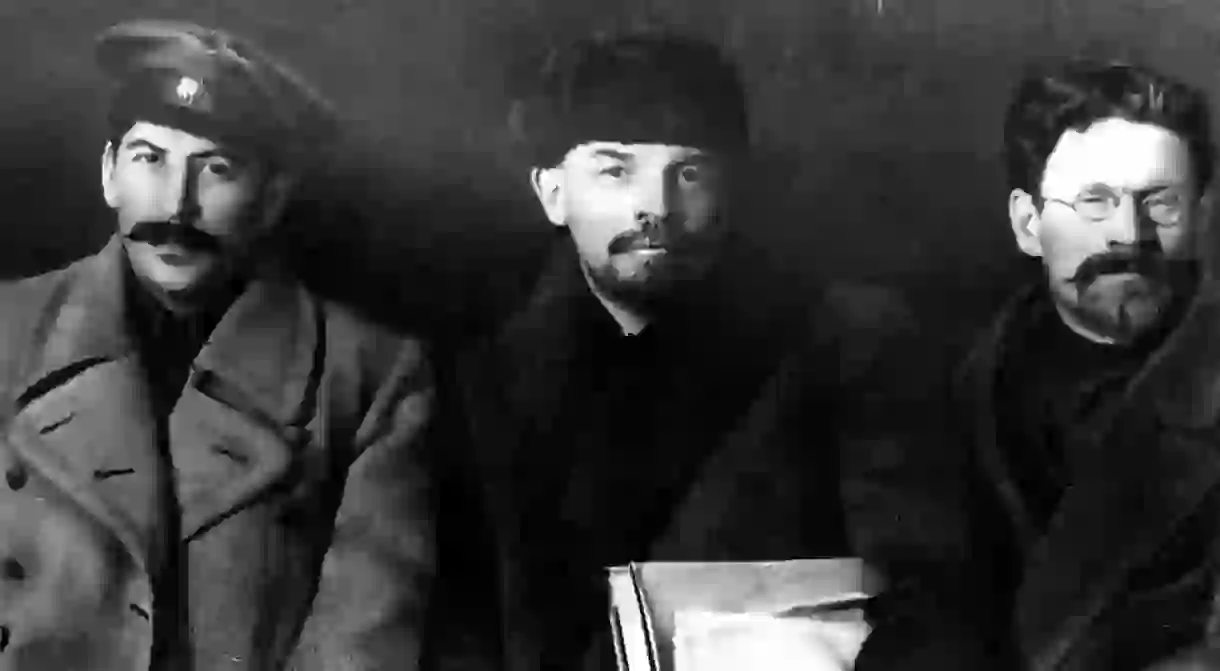How Lenin and the Russian Revolution Changed Literature

The Russian Revolution has been the subject of many exceptional novels, but the impact that the uprising itself had on literature is often overlooked. The Bolsheviks sought to curb Russia’s creative liberties almost immediately after they seized power, throwing some writers into exile and some into work camps – ultimately changing the course of literature forever.
The century before the Russian Revolution of 1917 had seen an intense, phenomenal bloom of literary genius. The Russian-British literary critic Isaiah Berlin described it as an ‘Athenian society’, with a handful of unusually intelligent and imaginative writers – writers like Tolstoy, Gogol, Pushkin, Bely and Chekhov – experiencing a ‘golden age’ that lasted as long as the one of their forerunners in classical Athens (roughly a century).
The Bolshevik triumph and civil war shattered this literary culture, however, and thrust most of its last practitioners off into an uncertain exile. The most famous of these exiled citizens was Vladimir Nabokov (whose Lolita would change literature entirely) – one of a generation of Russian writers who laboured to keep their literature alive after it had been torn from Russia and banished to distant countries. Having fled their homes, writers like Ivan Bunin and Sasha Chorny tended to gravitate towards famous European capitals like Paris, Berlin and, to a lesser extent, London — but they also moved eastwards, especially to China where sizeable émigré communities grew in cities like Shanghai and Harbin.

The writers who stayed in newly Bolshevised Russia, on the other hand, lived and worked under the watchful eyes of tyrants who took a special and sinister interest in Russia’s literary affairs. From the earliest rustles of revolution both Lenin and Stalin had been keen to cultivate a distinctly ‘Soviet’ literature, doing their best to mangle Russian literature into something politically palatable. Some writers, like Maxim Gorky, profited from the rise of Bolshevism, but many more, like the poet Osip Mandelstam, would perish in the work camps. ‘Only in Russia is poetry is respected,’ Mandelstam wrote – ‘it gets people killed’.

The revolution, and its subsequent experiment to create a ‘utopian’ society, was a subject that also kindled controversy in literary circles far beyond Russia. Many prominent writers elsewhere, like George Bernard Shaw and W. H. Auden, were drawn to the Bolshevik cause, while others, like George Orwell, Arthur Koestler and Albert Camus were repulsed by the burgeoning rumours of violence, famine and tyranny. Orwell and Koestler were two writers directly inspired by the Bolshevik drama to write their own fictional dystopias (1984 and Darkness at Noon respectively).

The Russian Revolution shattered the literary culture of Chekov and Tolstoy and sent hundreds of Russia’s greatest artists to death or exile. This exile produced at least one writer, Vladimir Nabokov, whose colossal shadow over literature persists to this day, but the events of the October Revolution and the subsequent Bolshevik regime would also polarise and inspire authors for years to come, sparking literary feuds and prompting some of the most famous and celebrated novels of the 20th century. The writers who stayed in Russia found themselves persecuted for their freethinking, but some of their novels such as Bulgakov’s The Master and Margarita or Vasily Grossman’s Life and Fate would eventually be published and receive great acclaim, but decades after their authors’ deaths.













